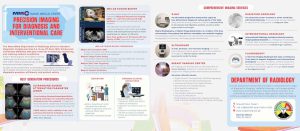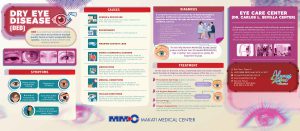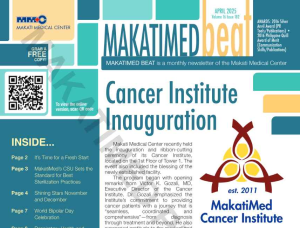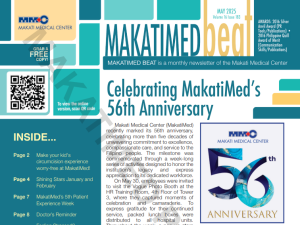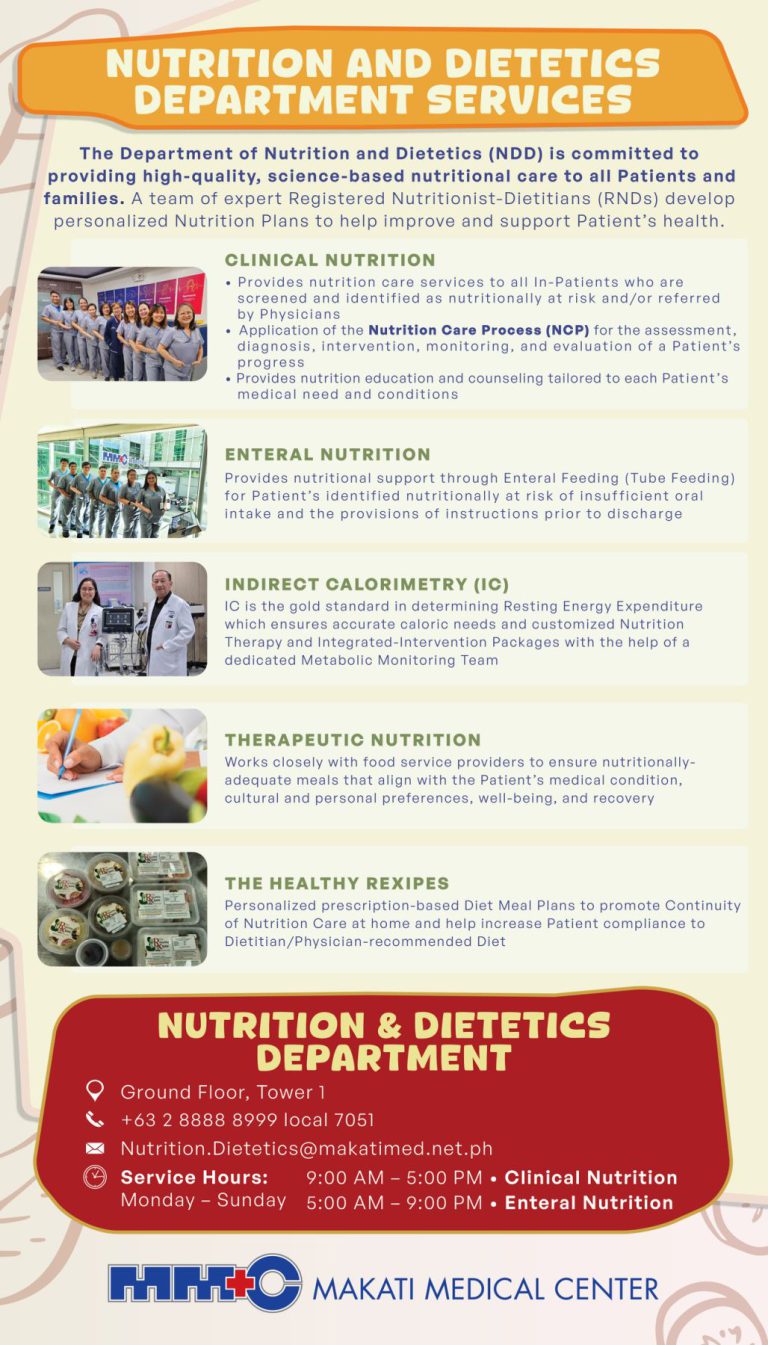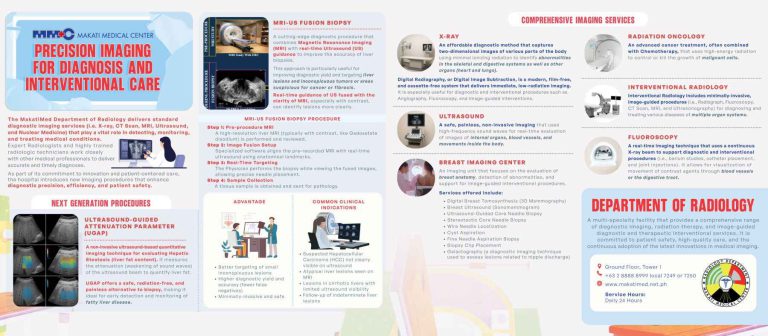During the 2019 pandemic, two patients of MakatiMed Psychiatry and Mood Disorders Specialist Carmina Charmaine G. Bernardo, MD had contracted COVID-19.
While holed up in their respective two-week quarantines, one spent the time meditating, reading Bible verses, and connecting on the phone with family and friends. The other turned to TikTok, uploading videos of herself dancing and having fun.
Which of the two had the more effective way of coping?
Many will likely pick the first, given the support of loved ones and the calming effects of meditation and messages from the Bible. But the other patient actually thrived while TikTok-ing her way through COVID. “When she came out of it, she cried, hugged people, and went off to work,” says Dr. Bernardo. “Who are we to say that TikTok’s wrong?”
“We have different ways of coping,” adds the psychiatrist. “What is successful for one individual might not be successful for the other. And if you think about it, as long as you are able to cope adequately and normally, and you are able to do whatever you need to do, then that is a coping mechanism that works for you.”
The struggle is real
Ah, life: Sometimes it is smooth sailing; other times, it is fraught with curveballs. Struggles, as we call them.
For Dr. Bernardo, struggle is subjective. A major crisis to one could be a minor glitch to another. “You cannot compartmentalize struggle,” she says. “Each of us, because we are shaped by our own experiences and reaction to things, has our own struggles.”
Struggle comes in two (2) forms. There is external struggle, as in you are struggling with finances, your car breaking down, how to deal with a chaotic household, and the like. Internal struggle grapples with the meaning of life. Am I doing a good job? Am I living my life to the fullest? Am I happy?
“If you think about it, some equate struggle with stress,” says the psychiatrist. “Because struggle causes stress.”
When we’re stressed—over losing our job, a breakup, paying a debt that’s long overdue—our body releases adrenaline and cortisol, hormones that increase our heartrate, elevate our blood pressure, and give us that extra surge of energy to deal with our stressor.
Depression, a typical reaction to too much stress, reduces levels of serotonin, another “feel-good” hormone responsible for regulating our mood, sleep, digestion, and other bodily functions.
Exposure to constant stress puts us at risk for chronic diseases like heart disease, obesity, diabetes, and hypertension. It also affects our mental wellbeing and ability to perform daily tasks.
Healthy coping strategies
As such, finding healthy ways to cope during tough times ensures we stay strong in body and mind
1. Take a 15-minute break
Who has not acted unbothered in the face of stressful moments, yet deep inside felt really, really upset? Maybe you were just trying to do the “mature” thing or be the better person at the time. But leaving unresolved issues bottled up can lead to an explosion of emotions; all it takes is a little trigger to set you off.
Awareness, says Dr. Bernardo, is key. “If you are feeling sad or angry, you need to step back. Tell your friends, your boss, your co-employees that you are going through something, and you need some space.”
Taking off for 15 minutes to walk, buy coffee, listen to your favorite music, watch a funny video on YouTube, or sit by yourself allows you to blow off some steam, reflect, and think straight before you get back in the saddle.
2. Choose adaptive coping
Prayer and meditation, going to the gym, volunteering with a non-profit, and seeking professional help are examples of adaptive coping—strategies that promote healthy wellbeing, build relationships, and foster self-care and awareness.
If you choose to gamble, engage in substance abuse, or go on a shopping spree with money you Do not have, you are doing maladaptive coping. While these can help you temporarily escape from your problems, “you are not doing anything about them either,” the psychiatrist says. “It is very important to see what kind of coping strategies you are employing.”
3. Get professional hel
If there is one good thing that came off the pandemic, it is that people have finally acknowledged the importance of mental health and are open to addressing their anxiety, trauma, and emotional baggage.
Dr. Bernardo recommends speaking to someone who is trained to listen and dispense advice. “The person you are telling your struggles to—usually a family member or friend—might have struggles of their own,” she says. “There are psychiatrists (experts trained in medicine and mental health), psychologists (those who deal solely with mental health), social workers, psychiatric nurses, guidance counselors, and others who can step in.”
Consider MakatiMed as your one-stop venue for mental health services. Its off-site Wellness Center offers psychological assessment, and online or in-person psychological counseling and psychological interventions for children, adults, couples, and families.
Meanwhile, its main hospital houses the Esketamine Care Center, which administers medication via nasal spray for treatment-resistant depression (or depressives whose symptoms persist after being prescribed with two types of antidepressants) and major depression with imminent suicidal thoughts or hurting yourself.
“Compared to your traditional antidepressants, which take two weeks before you see any improvement in your depression, with Esketamine, it takes two (2) hours, and we can actually see your depressive symptoms going down. “It is very effective and we see a gradual, sustained decrease of your depressive symptoms over time,” says Dr. Bernardo.
Coping, of course, does not happen overnight. It develops over time and through lessons learned from your unique experiences dealing with stress and struggle. “Again, it is very important to learn and to accept that one’s struggle is different from another,” says the psychiatrist. “We need to respect the person and how they deal with it.”
Another thing she tells her patients? Do not set a deadline for feeling better. “Do not say, ‘In two months, I should be okay.’ Your body will heal according to its own timeline. It will tell you when it is ready to go back.”
Article based on “Dealing with Life’s Struggles the Healthy Way” guesting of Carmina Charmaine G. Bernardo, MD, on June 25, 2025.
Click here for the list of MakatiMed Psychologists, and here for the list of Psychiatrists.
For questions/concerns, reach us via MakatiMed On-Call at (+632) 8888 8999 or at [email protected].



